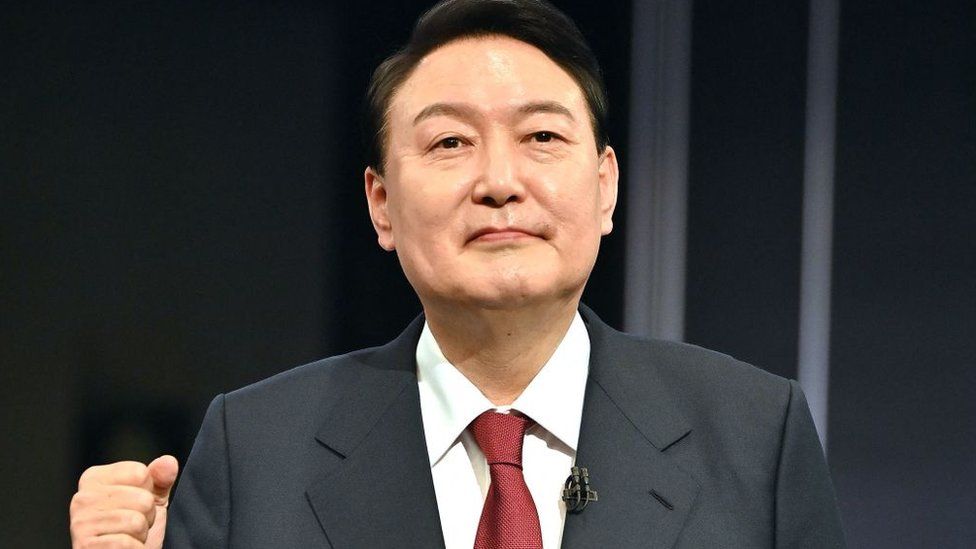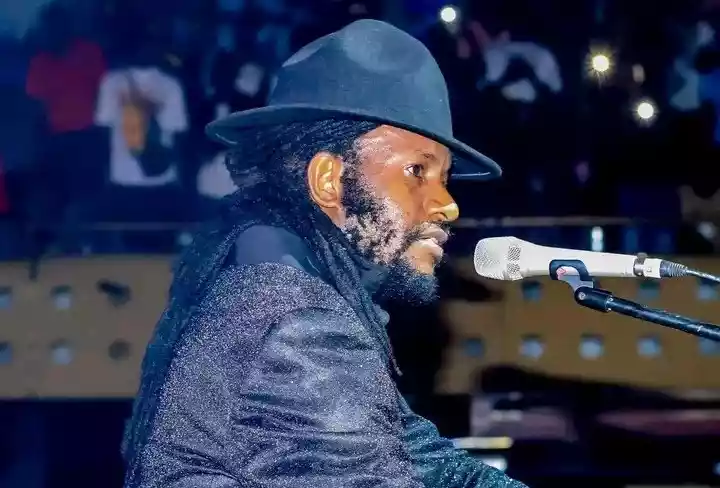
South Korea and the US launched eight missiles on Monday, in response to a volley of ballistic missiles fired by North Korea the previous day.
It comes as Pyongyang continues to escalate its missile tests.
South Korea’s president Yoon Suk-yeol said his government would respond sternly to any provocation from its northern neighbour.
“We will make sure there isn’t a single crack in protecting the lives and property of our people,” he said.
Speaking at a war memorial event in Seoul, he added that North Korea’s nuclear and missile programmes “are reaching the level of threatening not only peace on the Korean Peninsula but also in Northeast Asia and the world”, according to Yonhap.
The US and South Korea regularly hold joint military exercises, which often anger North Korea.
Early on Monday, hours after North Korea had fired several missiles off its east coast, the two allies launched eight surface-to-surface Army Tactical Missile Systems (ATACMS) – one from the US and seven from South Korea.
Analysts say the moves are South Korea showing off its muscle, with the aid of US weaponry.
- Chamisa under fire over US$120K donation
- Mavhunga puts DeMbare into Chibuku quarterfinals
- Pension funds bet on Cabora Bassa oilfields
- Councils defy govt fire tender directive
Keep Reading
It is the second retaliatory display from the US and South Korea in as many weeks, with a similar move made last week after Pyongyang fired a series of missiles in the immediate aftermath of US President Joe Biden’s visit to the region.
Such displays had been rare under South Korea’s previous administration.
President Yoon, who was inaugurated last month, has pledged to take a more hardline approach on North Korea.
The isolated Communist state has test-fired dozens of missiles in recent months, including an intercontinental ballistic missile for the first time in five years.
The UN prohibits North Korea from ballistic and nuclear weapons tests, and has imposed strict sanctions after previous tests.
Over the past months, North Korea has been testing weapons with increasing frequency. And in the past few weeks, South Korea and the United States have agreed to respond more strongly and bolster their defence.
Now a cycle is starting to emerge.
This weekend, a US aircraft carrier took part in a naval drill with South Korea. The day after, North Korea fired eight missiles. Now, another day on, South Korea and the US have fired eight missiles of their own in retaliation.
The questions are over what these retaliatory drills achieve. Do they make South Korea any safer? And will they get North Korea to scale back its testing or change its behaviour in any way?
Washington’s real challenge is to convince North Korea to return to nuclear talks. The United States’ nuclear envoy on North Korea said in Seoul on Friday that he had made very clear to the North they were ready to talk, but the North had shown no interest.
Instead, North Korea appears to be preparing to conduct its first nuclear test in more than four years.
Tensions between the two Koreas could be about to escalate further.
North Korean state media did not mention Pyongyang’s actions on Monday – a recent break with tradition that some analysts say is due to the country focusing on managing its Covid outbreak.
Its firings came a day after South Korea and the US finished customary joint military drills which have been criticised by North Korea as evidence of the US’ hostile behaviour towards it.
“The allies have quickly responded to the recent missile firings with counter launches that demonstrate combined readiness for precision strikes against the origin of an attack,” said Leif-Eric Easley, a professor of international studies at Ewha University in Seoul.
But he warned that South Korea’s current missile defences were “insufficient against the expanding North Korean threat.”-Bbc











